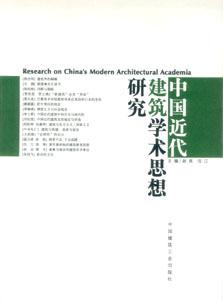How Innovation Works
内容简介
Innovation is the main event of the modern age, the reason we experience both dramatic improvements in our living standards and unsettling changes in our society. Forget short-term symptoms like Donald Trump and Brexit, it is innovation itself that explains them and that will itself shape the 21st century for good and ill. Yet innovation remains a mysterious process, poorly understood by policy makers and businessmen, hard to summon into existence to order, yet inevitable and inexorable when it does happen.
Matt Ridley argues in this book that we need to change the way we think about innovation, to see it as an incremental, bottom-up, fortuitous process that happens to society as a direct result of the human habit of exchange, rather than an orderly, top-down process developing according to a plan. Innovation is crucially different from invention, because it is the turning of inventions into things of practical and affordable use to people. It speeds up in some sectors and slows down in others. It is always a collective, collaborative phenomenon, not a matter of lonely genius. It is gradual, serendipitous, recombinant, inexorable, contagious, experimental and unpredictable. It happens mainly in just a few parts of the world at any one time. It still cannot be modelled properly by economists, but it can easily be discouraged by politicians. Far from there being too much innovation, we may be on the brink of an innovation famine.
Ridley derives these and other lessons, not with abstract argument, but from telling the lively stories of scores of innovations, how they started and why they succeeded or in some cases failed. He goes back millions of years and leaps forward into the near future. Some of the innovation stories he tells are about steam engines, jet engines, search engines, airships, coffee, potatoes, vaping, vaccines, cuisine, antibiotics, mosquito nets, turbines, propellers, fertiliser, zero, computers, dogs, farming, fire, genetic engineering, gene editing, container shipping, railways, cars, safety rules, wheeled suitcases, mobile phones, corrugated iron, powered flight, chlorinated water, toilets, vacuum cleaners, shale gas, the telegraph, radio, social media, block chain, the sharing economy, artificial intelligence, fake bomb detectors, phantom games consoles, fraudulent blood tests, faddish diets, hyperloop tubes, herbicides, copyright and even―a biological innovation―life itself.
......(更多)
作者简介
[英]马特·里德利(Matt Ridley)
英国科普作家,科学家,拥有世袭子爵头衔的英国上议院议员,纽卡斯尔英国国际生命中心的创始主席,纽约冷泉港实验室客座教授,他同时还是英国皇家文学会会员、英国皇家医学会会员、美国艺术与科学院院士。因其在科学、环境学与经济学领域的著作而闻名。
早年就读于伊顿公学与牛津大学莫德林学院,主修动物学,并因对雉鸡的繁育系统研究而获得博士学位。
他的成名作为《理性乐观派》,同时还著有《基因组》《先天后天》《美德的起源》的“基因三部曲”,以及畅销书《自下而上》。《福布斯》杂志称其为英国的尤瓦尔·赫拉利。
他也曾因为TED上的演讲“When Idea Have Sex”讨论思想交融与生物繁衍的相似性而轰动一时。
他的知名科普著作《基因组》中文版曾获得第一届文津奖,2021年新版由华大基因CEO尹烨博士翻译,并得到了包括钟南山院士在内的8名院士的推荐。
......(更多)
目录
......(更多)
读书文摘
到了2050年,通过使用加密货币,我们可以改变政府和货币之间的关系,从而永远规避快速通胀。我们可以利用区块链技术去除部分要价高昂的中间人:如律师、会计师和顾问。我们将让犯罪越来越难发生,也越来越容易侦破。我们可以让税收更加公平,并减少政府开支的浪费。
奥托设计了发动机的循环;勒努瓦制造了第个粗糙的版本;德·里瓦兹预示着它的前景。然而,即便是这么复杂的历史还是遗漏了很多其他人的名字,詹姆
......(更多)






